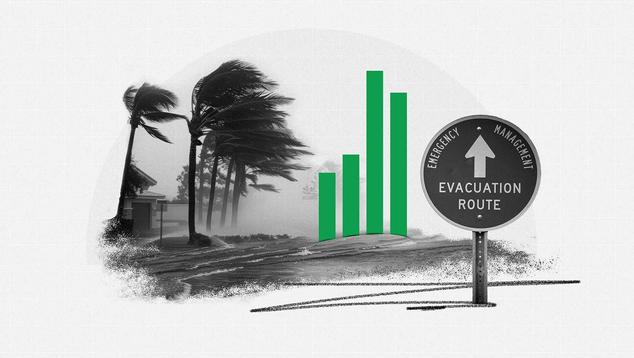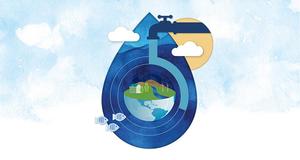WASHINGTON, D.C. — Thirty-seven percent of U.S. adults say they have been personally affected by an extreme weather event in the area where they live within the past two years, compared with 33% in Gallup’s prior measures in 2022 and 2023. Sharply more Americans living in the West have recently experienced an extreme weather event — 43%, up from 30% in 2023.
In contrast, fewer Eastern residents say they have been affected by extreme weather than did so two years ago, 21% versus 30%. There have been modest increases among those living in the South — the region where people are most likely to say they experience extreme weather — and the Midwest.
The results are based on a March 3-16 Gallup poll and come after a series of strong hurricanes, wildfires and tornadoes hit the United States over the past two years.
Wildfires Most Common Events in West, Hurricanes in South
Wildfires and extreme heat largely account for the increased reports of extreme weather among Western residents. Seventeen percent of those living in the West have been affected by wildfires, up from 5% in 2023. The 11% of Western residents who experienced excessive heat is also up from 5% two years ago. Another 6% of Westerners have experienced floods and 4% drought in the past two years.
Southern residents are most likely to have been affected by hurricanes — 28% say they have experienced one in the past two years, up from 18% in 2023. Meanwhile, 9% of Southern residents were affected by tornadoes and 7% by extreme cold.
Among Midwestern residents, tornadoes (10%) and extreme cold (6%) were most commonly experienced. The top extreme weather events Eastern residents have experienced are floods (6%) and hurricanes (5%).
The preponderance of hurricanes among Southern residents makes them the top extreme weather event experienced by Americans, overall, at 12%. That is twice as many as the next-most-common events — tornadoes and extreme heat. Four percent of Americans have been affected by wildfires, extreme cold or floods.
More Americans than in 2023 say they have been impacted by hurricanes, wildfires and tornadoes, while fewer have experienced extreme cold or snow, ice storms, or blizzards.
One in Four Report Significant Life Disruptions
A separate survey, conducted by web using the Gallup Panel, finds that one in four Americans who experienced an extreme weather event — equivalent to 9% of all U.S. adults — said it significantly disrupted their lives for more than a week. More than half of those affected, 55%, said their lives were moderately disrupted for up to a week. The remaining 20% said the weather did not disrupt their lives in a significant way.
The most common disruptions for people affected by extreme weather were loss of power, heat or water — 35% say they lost these services for up to one day, and 36% say they lost these utilities for more than a day.
Slightly fewer than one in five had their home, car or property damaged (19%), had to take shelter inside of their home (17%) or had to leave home and stay somewhere else locally (14%).
The most severe disruptions were experienced by no more than one in eight victims each. These include having to file insurance claims for lost or damaged property (12%), having to evacuate their local area (6%), receiving government assistance (5%), or having their home, car or property damaged beyond repair (3%).
Implications
More than one-third of Americans say they have had brushes with extreme weather events in the past two years, particularly hurricanes, wildfires and tornadoes. For many, the disruptions resulted in loss of power, heat or water. However, between 3% and 12% suffered more severe consequences, including needing to rely on government assistance or insurance to recover from losses.
Scientists attribute increased and more intense extreme weather events to climate change. Gallup has previously demonstrated a link between extreme weather experiences and concern about climate change. Americans in the current poll who have experienced extreme weather are significantly more likely to say they worry “a great deal” about climate change (51%) than those who have not (34%). This effect is seen among both Republicans (who are much less inclined to worry about climate change) and Democrats (who are much more inclined). Extreme weather experiences, then, may contribute to the rise in concern about climate change Gallup has observed, with an average 41% worrying a great deal about the issue over the past 10 years compared with 32% in the 25 years before that.
To stay up to date with the latest Gallup News insights and updates, follow us on X @Gallup.
Learn more about how the Gallup Poll Social Series works.
View complete question responses and trends (PDF download).




